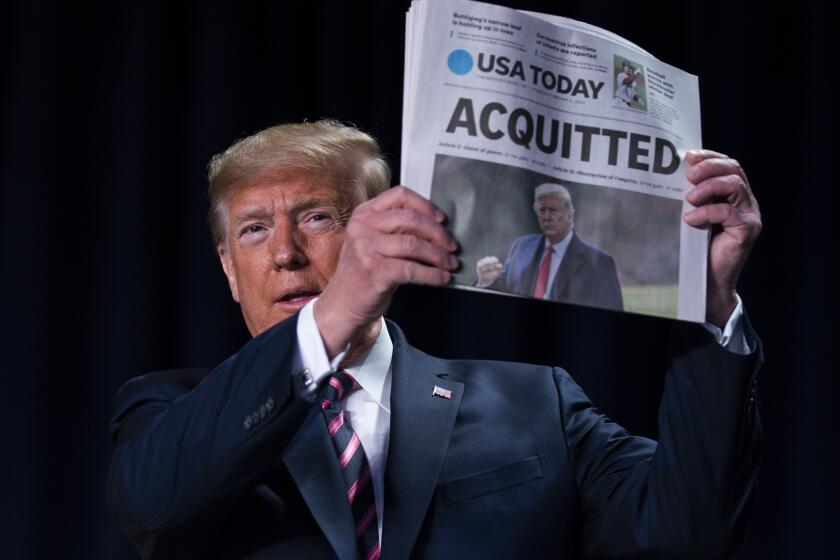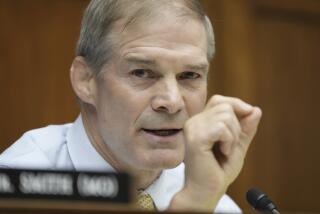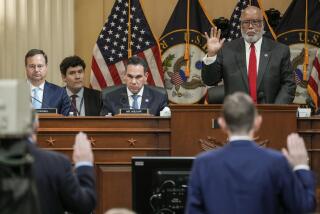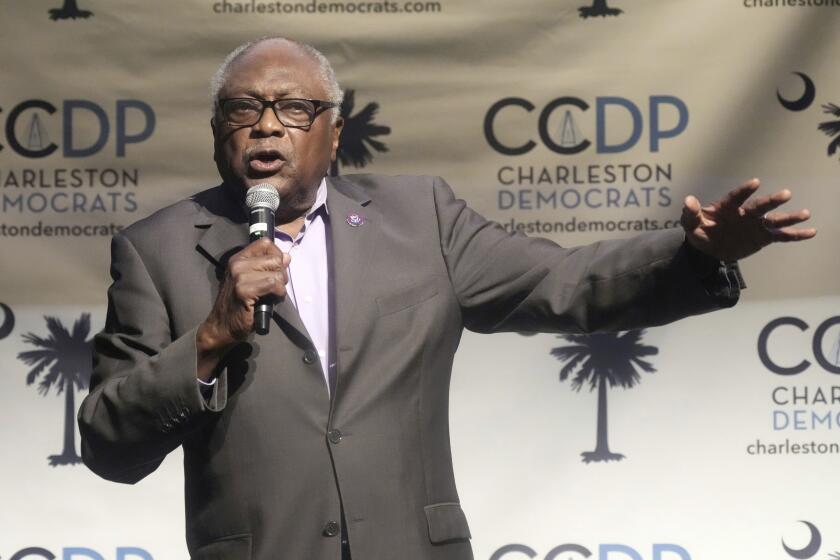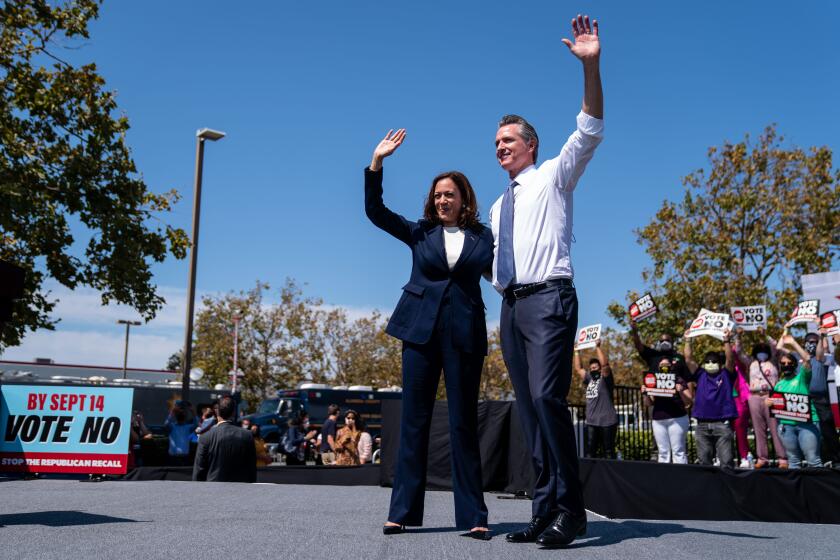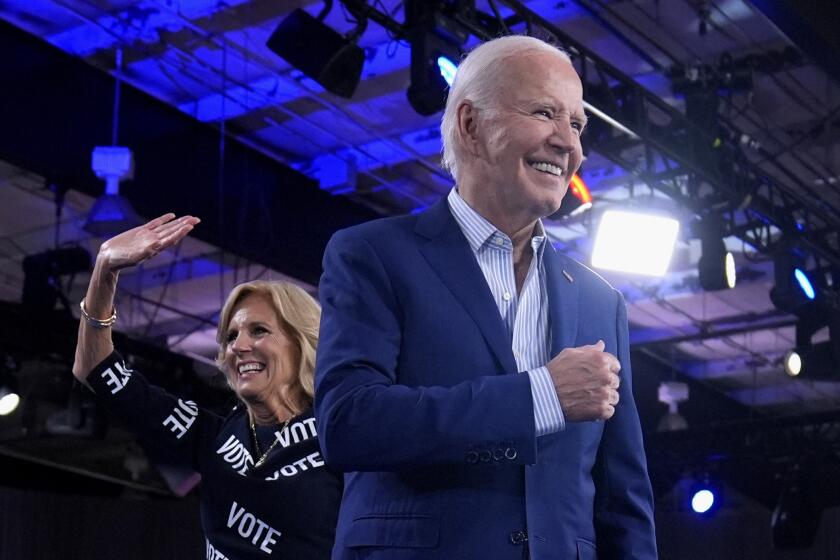Impeachment trial likely to end quickly after key Republican says he’ll vote against witnesses
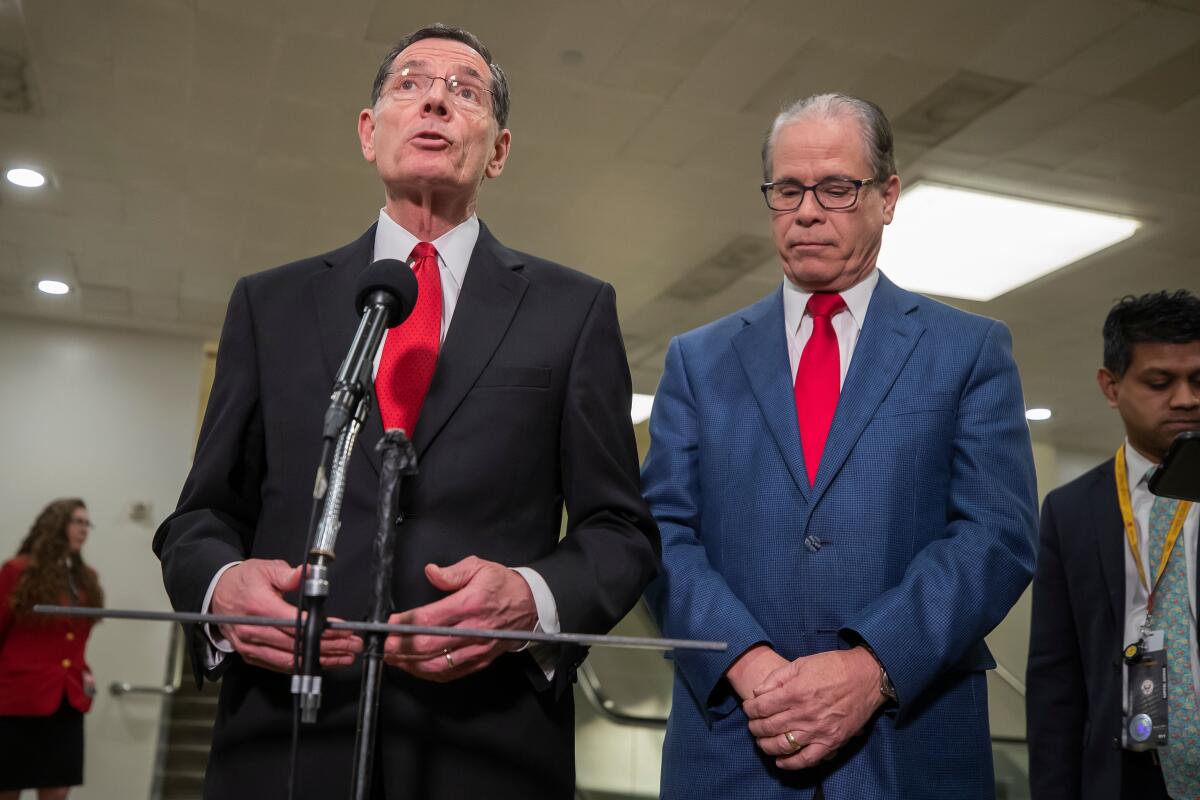
With the announcement from a key Republican that he won’t back a call for witnesses in President Trump’s impeachment trial, Republicans are likely to wrap up the trial quickly, perhaps as soon as Friday evening.
Democrats’ hopes for witnesses dwindled when one of the few Republicans still weighing the issue, Sen. Lamar Alexander of Tennessee, announced he would not join Democrats on Friday when the vote on witnesses is expected to take place.
Democrats have pushed the Senate for weeks to call additional witnesses such as former national security advisor John Bolton — who refused to appear during the House investigation — a move Senate Republican leaders have resisted.
“I worked with other senators to make sure that we have the right to ask for more documents and witnesses, but there is no need for more evidence to prove something that has already been proven and that does not meet the U.S. Constitution’s high bar for an impeachable offense,” Alexander said in a statement. “The question then is not whether the president did it, but whether the United States Senate or the American people should decide what to do about what he did.”
Alexander’s statement that there is “no need for more evidence to conclude that the president withheld United States aid, at least in part, to pressure Ukraine to investigate the Bidens” is a far cry from Trump’s claim that his call to Ukraine’s president was “perfect.” To that extent, it rejected a major part of the president’s defense. But since it opens the way for a speedy Senate acquittal, it will achieve Trump’s main goal.
The House of Representatives intends to vote to impeach President Trump for abusing his office and obstructing Congress, a condemnation that only two other U.S. presidents have faced in the nation’s 243-year history. Despite the historic nature of the vote on charging the president with committing high crimes and misdemeanors, Trump’s fate has been sealed for days, if not weeks in the Democratic-controlled House.
By the end of the second day of questioning House prosecutors and White House lawyers, Republicans were indicating that a final vote on whether to acquit or convict Trump could happen Friday, or early Saturday morning.
“Let’s face it: We’re down to just a few senators on each side that are grappling with whether they need more information,” said Sen. Mike Braun (R-Ind.). “I think at this point we’re getting close to judgment day, which means you have to vote eventually to either convict or acquit.”
The House voted to impeach Trump in December on two articles: first, abuse of power for withholding military aid and a coveted White House meeting unless Ukraine announced investigations into his Democratic rivals; and second, obstruction of Congress for preventing federal employees and agencies from complying with subpoenas for testimony and documents during the House investigation.
On Thursday, questions went back and forth between Republicans and Democrats, read aloud by Chief Justice John G. Roberts Jr. The House managers and the White House have spent six days laying out their respective cases as the Senate weighs whether to acquit Trump or to convict him and remove him from office.
For much of the week the question has lingered: Will four Republicans join Democrats to vote in favor of subpoenaing witnesses?
Thursday’s questioning was one of the last chances for senators to sway a dwindling pool of moderate and vulnerable colleagues on whether to call witnesses in the trial.
Four Republican votes are needed, but just Sens. Susan Collins of Maine and Mitt Romney of Utah have said they support hearing from witnesses. Collins made her support for subpoenaing witnesses and documents official Thursday evening, saying in a statement she supports an equal, limited number of witnesses for both sides.
Sen. Lisa Murkowski of Alaska, a third potential vote for witnesses, and a handful of other Republicans have remained coy about their positions.
Murkowski raised eyebrows Thursday when after a long silence she asked the White House lawyers to explain why the Senate should not call Bolton as a witness.
As she left the Capitol, Murkowski said she would announce a decision in the morning.
“I’ve got two — my two volumes here — I’ve actually got one and a half,” Murkowski told reporters, just as her colleague Collins came out in support of witnesses, and before Alexander made his statement that he was against them. “I’m going to go back, put some eye drops in, so I can keep reading.”
If the Senate chooses to not hear from witnesses, it will be the first time a presidential impeachment trial does not include any. The previous impeachments both included new witnesses who had not testified as part of the House investigation.
On Friday, the Senate will hear up to another four hours of arguments about the need for witnesses, and then may deliberate behind closed doors for an unlimited amount of time before holding a vote on whether to call any. Accomplishing all that on Friday could be a tall order.
Sen. John Thune, a South Dakota Republican who is the second-ranking member of the Senate, indicated Republicans want to forgo lengthy closing arguments and closed-door deliberations before casting their final votes. Senators deliberated privately for four days before voting to acquit Clinton in 1999.
Democrats maintained all day that while swaying enough Republicans remains an uphill battle, they too were optimistic they would get the votes necessary to call witnesses, such as Bolton, who has said he will comply with a Senate subpoena. Trump has indicated he will try to block Bolton from testifying.
“I listened for some glimmer of hope from the Republican side, certainly from the three that we’re watching most closely,” Sen. Richard J. Durbin (D-Ill.) said. “The questions asked and style of the questions led us to believe that they are still open-minded on the issue.”
If the vote on witnesses fails, Senate Majority Leader Mitch McConnell (R-Ky.) could move for an immediate vote on acquittal or conviction Friday, said Sen. John Barrasso (R-Wyo.). “I think it’s time to vote. I’m ready to vote, and I’m ready to vote now.”
Senate Minority Leader Charles E. Schumer (D-N.Y.) hinted that procedural moves were possible Friday to draw out the trial if Democrats don’t win the witness vote.
Sen. Chris Van Hollen (D-Md.) outlined a possible tactic to reporters, saying he plans to introduce a resolution, after the vote on witnesses, that would effectively force Roberts to take a position. If Republicans vote down that proposal, he said, they’d be on the record that they “were not willing to let the chief justice of the United States make this determination.”
Thursday’s questions repeatedly devolved into personal back-and-forths, rarely resulting in new information.
Sen. Rand Paul (R-Ky.) tried for the second time to force a question including the name of a whistleblower to be read aloud Thursday, but was rejected.
“The presiding officer declines to read the question as submitted,” Roberts said after reading the question to himself. He then placed the card to the side.
Roberts also reportedly refused to read Paul’s question Wednesday behind closed doors because it included the whistleblower’s name. Thursday’s attempt was the first time Paul tried to push the issue publicly on the Senate floor.
During the questioning period of the trial, the chief justice reads aloud the questions posed in writing by senators. Including the name in a question would put Roberts in the position of outing the whistleblower.
Paul read his question to reporters afterward. It asked whether a person identified by some as a whistleblower may have conspired with a colleague, who is now a staffer for Rep. Adam B. Schiff (D-Burbank), to bring Trump down.
Some Republicans have repeatedly pushed for the whistleblower whose complaint launched the House impeachment investigation to be called as a witness, and several questions Wednesday were aimed at eliciting new information about the whistleblower and whether he or she worked for Vice President Joe Biden, as some conservative outlets have claimed.
Later in the day, Sen. Ron Johnson (R-Wis.), on behalf of himself and a group of more than a dozen Republican senators, asked Paul’s question in a different way. He asked about an alleged meeting of National Security Council staffers several weeks into the Trump administration in which the individuals purportedly said they would try to “take out the president.” The question, which Roberts read out loud, claimed that the House Intelligence Committee then hired one of those individuals, asking what role he had played. It did not use the purported name of the whistleblower.
Schiff answered that he was “appalled” at the attempted “smearing” of congressional staff and identification of the whistleblower.
“Our system relies on it,” Schiff said of whistleblower protections. “When you jeopardize that, in trying to out them this way, you are not threatening just this whistleblower, but this entire system.”
One Trump lawyer, Alan Dershowitz, attempted Thursday morning to walk back a standout argument from Wednesday’s questioning that drew widespread derision from Democrats.
“If a president does something that he thinks will help him get elected, in the public interest, that cannot be the kind of quid pro quo that results in impeachment,” Dershowitz had said on the Senate floor.
Dershowitz tweeted Thursday morning that cable news outlets misconstrued what he was trying to say.
“They characterized my argument as if I had said that if a president believes that his reelection was in the national interest, he can do anything. I said nothing like that, as anyone who actually heard what I said can attest.” He added in a second tweet that he meant a president should not be impeached if he has mixed motives for his behavior.
Democrats jumped on his argument, dismissing his walk-back.
That logic “would unleash a monster; more aptly, it would unleash a monarch,” Schumer told reporters Thursday.
More to Read
Get the L.A. Times Politics newsletter
Deeply reported insights into legislation, politics and policy from Sacramento, Washington and beyond. In your inbox three times per week.
You may occasionally receive promotional content from the Los Angeles Times.
